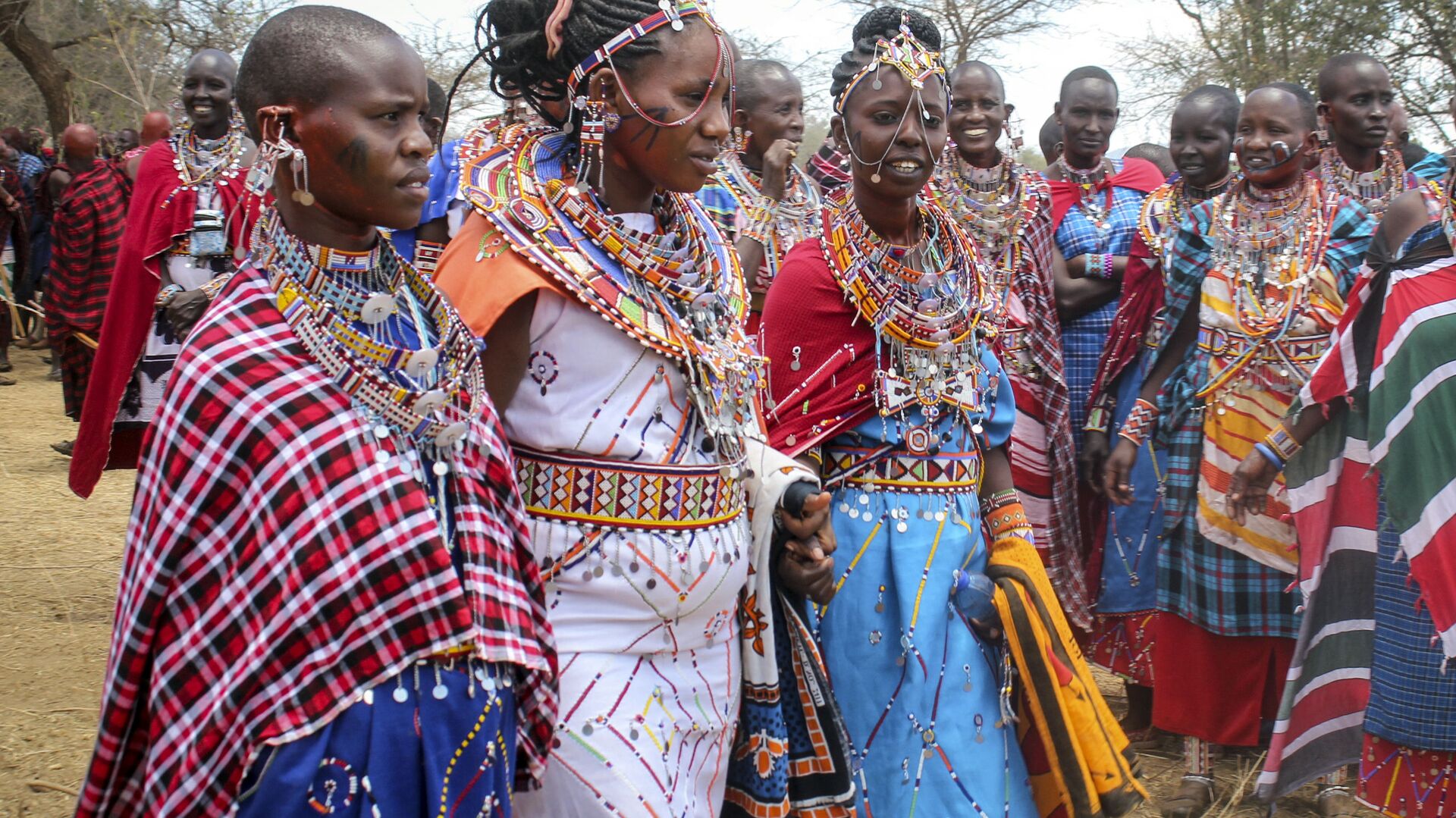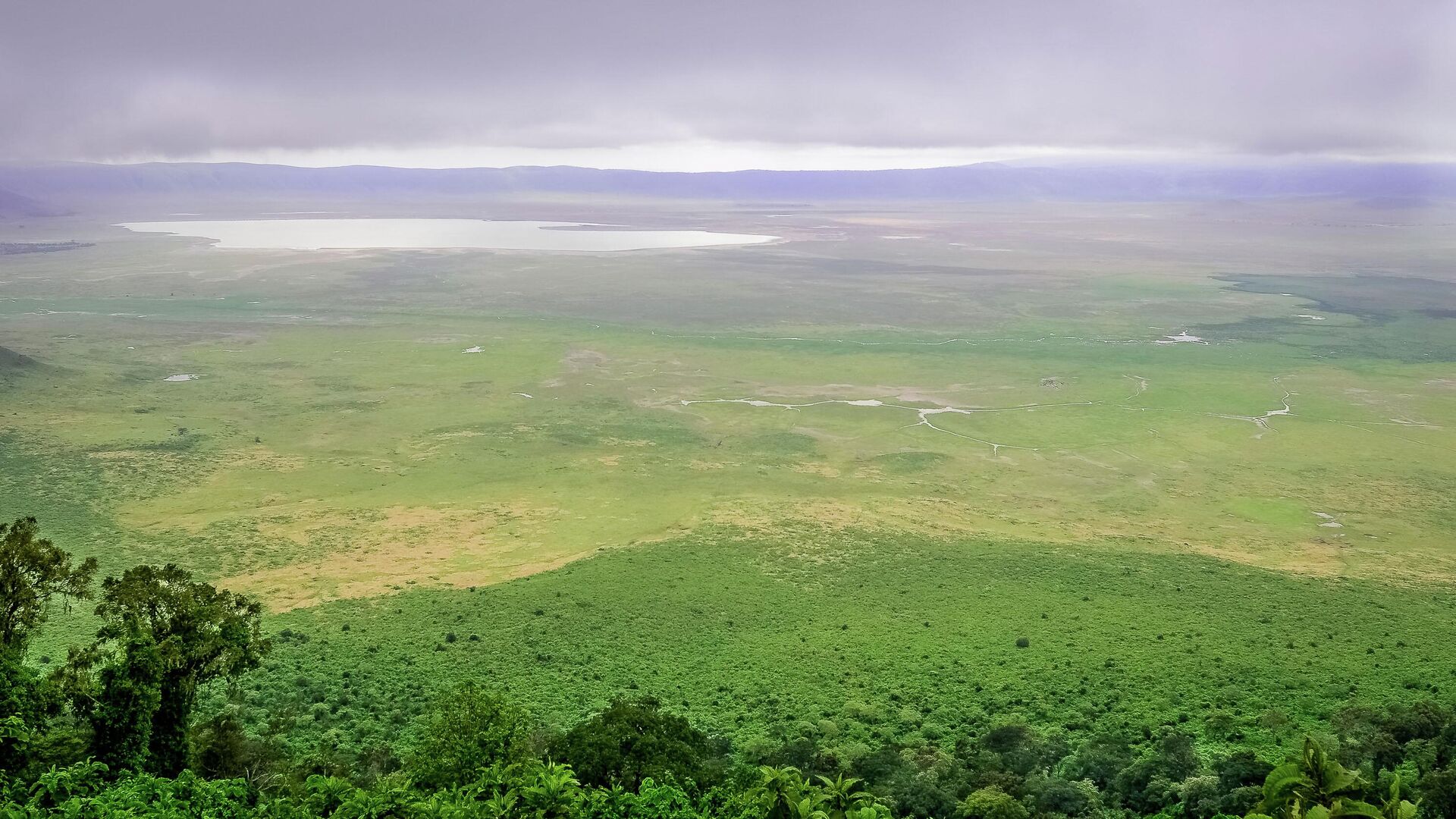UN Experts Decry Police Violence Against Maasai Tribesmen in Tanzania’s Ngorongoro Crater
20:37 GMT 16.06.2022 (Updated: 20:40 GMT 16.06.2022)

© AP Photo
Subscribe
One of the most popular wildlife safari locations in Africa, Tanzania’s Ngorongoro Crater is famous for its herds of wildebeest and lion prides as well as scenic panoramas, bringing in millions in revenue each year. However, locals fear their interests are being sacrificed to satisfy tourist fantasies.
A panel of human rights experts convened by the UN Office of High Commissions on Human Rights (OHCHR) has condemned reports of violence against Massai tribesmen by Tanzanian police, warning that forced evictions and displacement violate international law.
“We are deeply alarmed at reports of use of live ammunition and tear gas by Tanzanian security forces on 10 June 2022, reportedly resulting in about 30 people sustaining minor to serious injuries from live bullets and the death of a police officer,” the experts said on Wednesday.
A pastoralist people who herd various types of cattle between different locations over the course of the year, the Maasai are indigenous across East Africa but were steadily displaced from their lands by European colonialism. Today their traditional livelihoods are largely confined to nature reserves shared by threatened species like the Black Rhinoceros.
According to environmental news site Mongabay, the situation began on June 6, when roughly 700 members of Tanzania’s anti-riot Field Force Unit (FFU) arrived without explanation in the Loliondo region of Ngorongoro, a vast crater some 100 square miles in size that is a UNESCO World Heritage Site.
Several days later, the police told the villagers that they were there to begin demarcating land for a game reserve, and began erecting beacons. The reserve would create a wildlife corridor for trophy hunting and safari tourism and evict some 70,000 Maasai from their land - about half of the Maasai population in Ngorongoro.
The Maasai resisted, beginning a sit-in protest that one leader told Mongabay was “a peaceful demonstration, just to try to push for police attention.” The police opened fire with live rounds, shooting 31 people, killing one and seriously injuring 14. One police officer was also killed, shot by a Maasai arrow. Police have arrested about 19 people including nine councilors and the district chairman.
Tourism is a major economic factor for the East African nation, bringing about 650,000 people to the country each year and about $55 million in revenue. Visitors to the crater can stay in high-end hotels that enjoy infrastructure that Maasai villages lack, including running water and electricity. By contrast, just 4.8% of Ngorongoro Conservation Area income was spent on “community development” in 2018, according to Mongabay - about one-third of what was spent four years earlier.
The Tanzanian government says there are no plans to forcibly evict the Maasai, who number some 150,000 in the area, but the UN experts noted that “under such conditions, it seems impossible to guarantee that the relocation of the Maasai from the area will not amount to forced evictions and arbitrary displacement under international law.”
“This will cause irreparable harm, and could amount to dispossession, forced eviction and arbitrary displacement prohibited under international law,” they wrote. “It could jeopardize the Maasai’s physical and cultural survival in the name of ‘nature conservation’, safari tourism and trophy hunting, ignoring the relationship that the Maasai have traditionally had with their lands, territories and resources and their stewardship role in protecting biodiversity.”
Tanzanian officials say the Maasai who have left have done so voluntarily. Arusha regional commissioner John Mongella told AFP that about 296 families had registered to move to a district about 370 miles south of Ngorongoro, where the government had set aside about 400,000 acres for Maasai resettlement.
"I have seen water, schools and even electricity in the new residence, why shouldn't I go there?" one herder told AFP.

